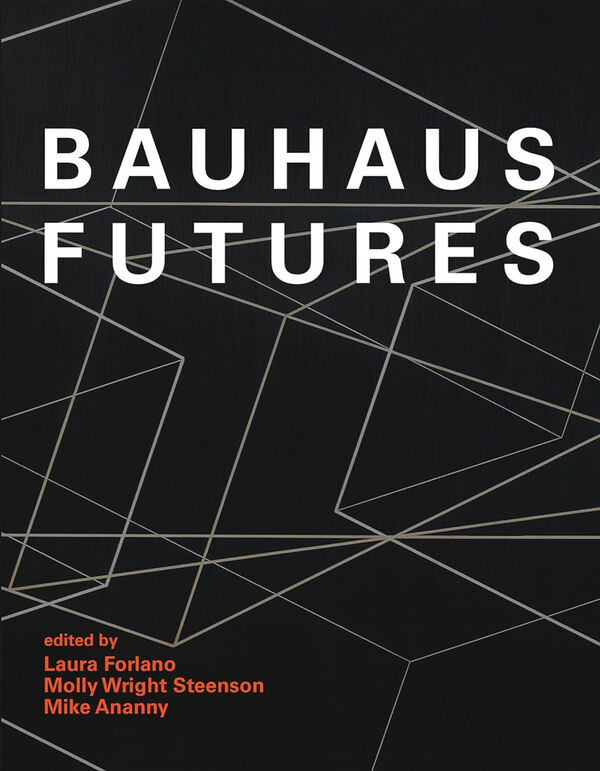Contact
art book cologne GmbH & Co. KG
Deutzer Freiheit 107
50679 Köln
Germany
Opening hours (office and showroom):
Monday to Friday 8 – 17
info@artbookcologne.de
Phone: +49 221 800 80 80
Fax: +49 221 800 80 82
About us
art book cologne, founded by Bernd Detsch in 1997, is a wholesale company and specializes in buying and selling high quality publications in art, art theory, architecture, design, photography, illustrated cultural history and all related subjects internationally. Our team includes specialists in art, culture, music, book trade and media but in spite of our diversity we have one common ground: the enthusiasm for unique art books.
We purchase remaining stocks from museums, publishers and art institutions. We sell these remainders to bookstores, museum shops, and art dealers all over the world.
Bauhaus Futures
| Editor | Laura Forlano, Molly Wright Steenson, Mike Ananny |
| Publisher | MIT Press |
| Year | 2019 |
| Cover | Hardcover with dust jacket |
| Language | English |
| ISBN | 978-0-262-04291-8 |
| Pages | 342 |
| Weight | 926 g |
| More | |
| Contributors | Alice Arnold, Jeffrey Bardzell, Shaowen Bardzell et al. |
| Article ID | art-67397 |
Essays, photo-essays, interviews, manifestos, diagrams, and a play explore the varied legacies, influences, and futures of the Bauhaus.
What would keep the Bauhaus up at night if it were practicing today? A century after its founding by Walter Gropius in Weimar, Germany, as an “experimental laboratory of the future,” who are the pioneering experimentalists who reinscribe or resist Bauhaus traditions? This book explores the varied legacies, influences, and futures of the Bauhaus.
Many of the animating issues of the Bauhaus—its integration of research, teaching, and practice; its experimentation with materials; its democratization of design; its open-minded, heterogeneous approach to ideas, theories, methods, and styles—remain relevant. The contributors to Bauhaus Futures address these but go further, considering issues that design has largely ignored for the last hundred years: gender, race, ethnicity, class, sexuality, and disability.
Their contributions take the form of essays, photo-essays, interviews, manifestos, diagrams, and even a play. They discuss, among other things, the Bauhaus curriculum and its contemporary offshoots; Bauhaus legacies at the MIT Media Lab, Black Mountain College, and elsewhere; the conflict between the Bauhaus ideal of humanist universalism and current approaches to design concerned with race and justice; designed objects, from the iconic to the precarious; textile and weaving work by women in the Bauhaus and the present day; and design and technology.

